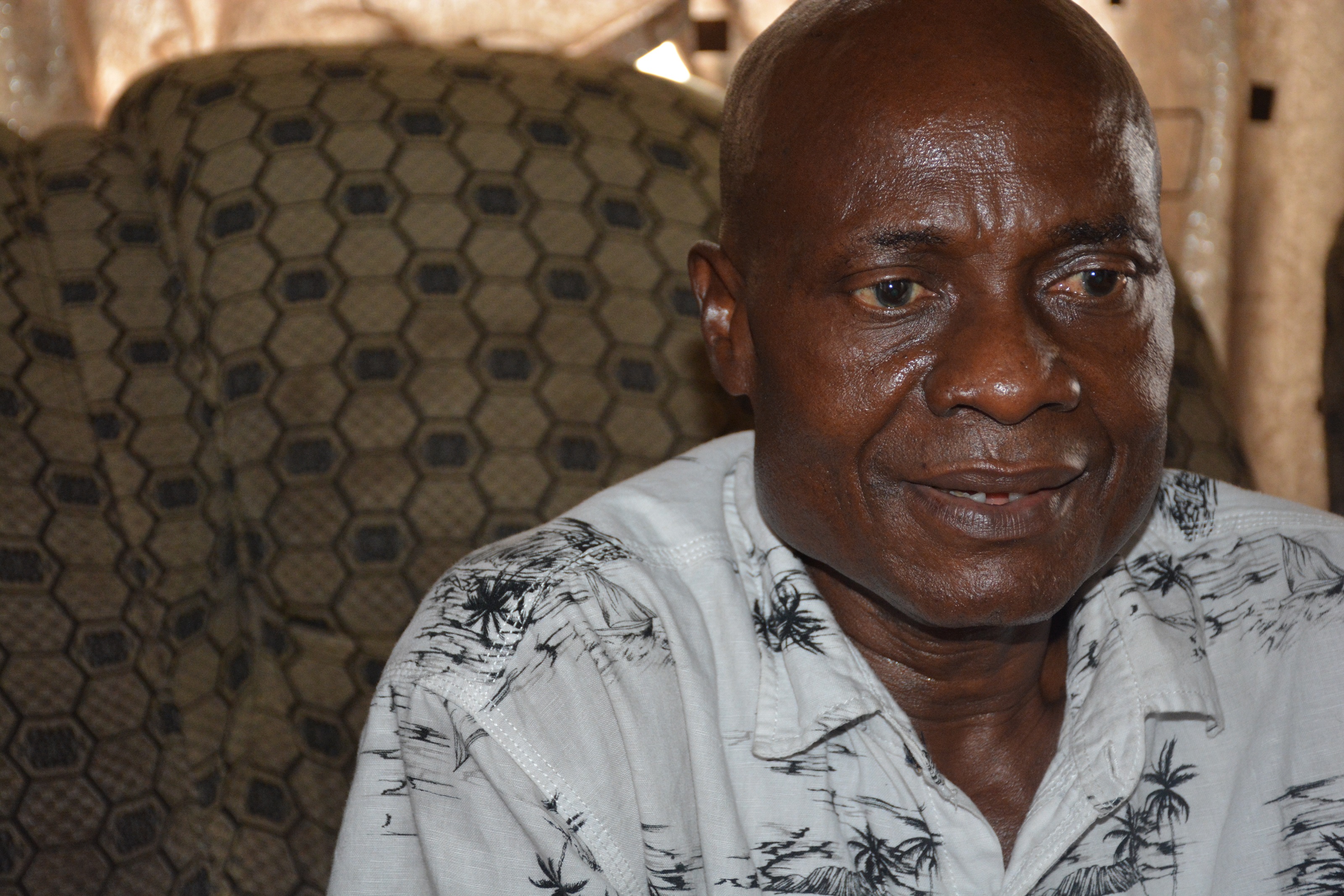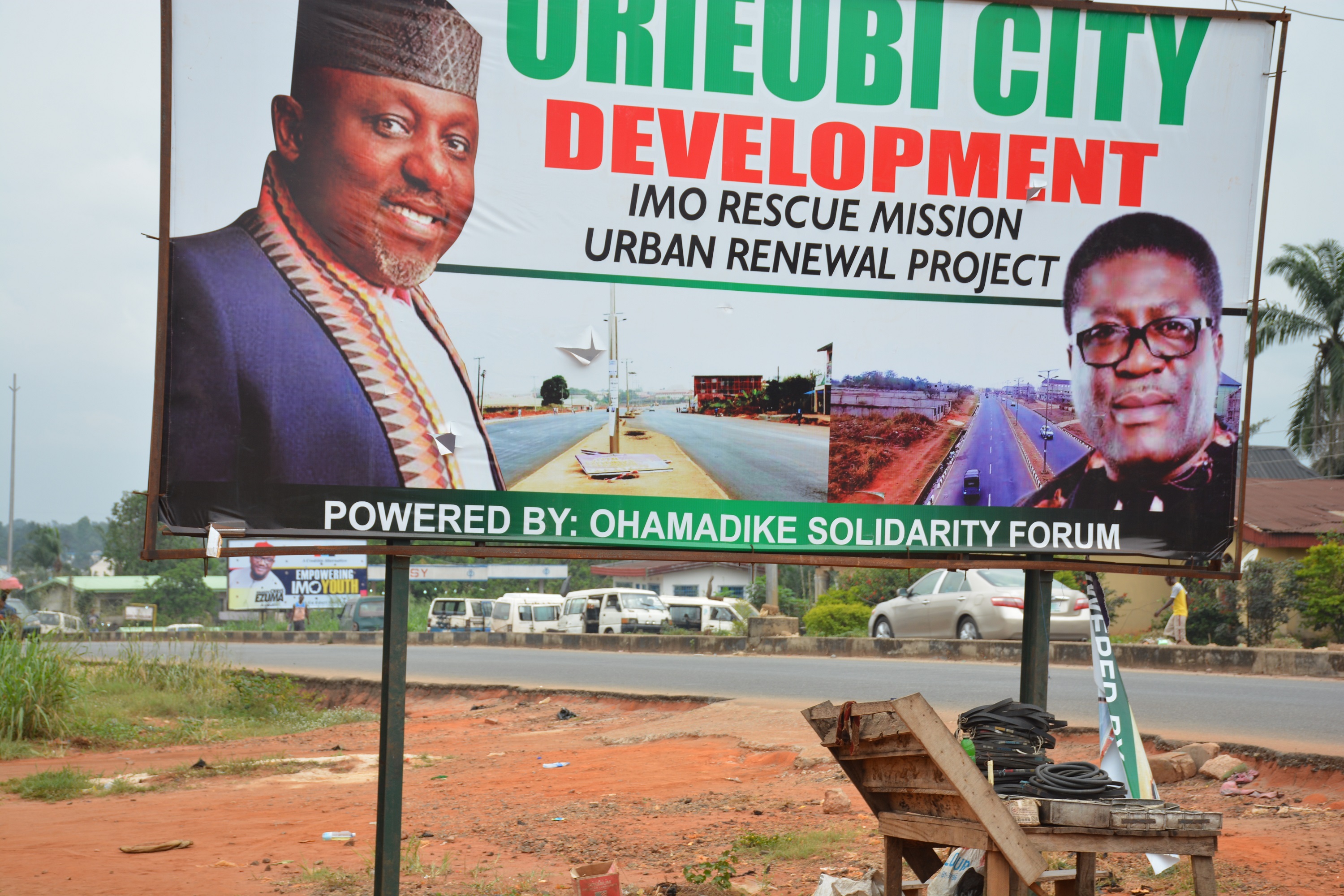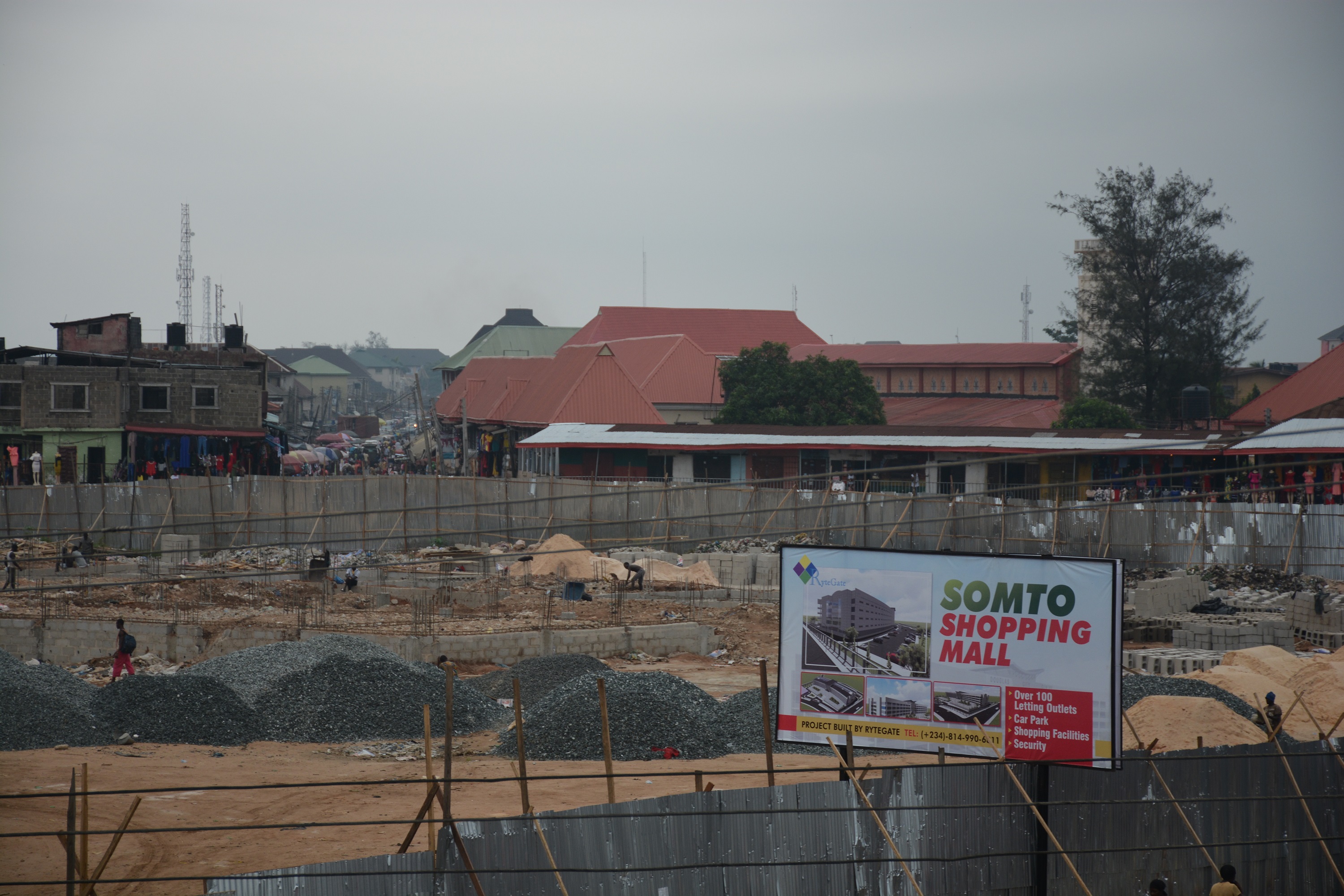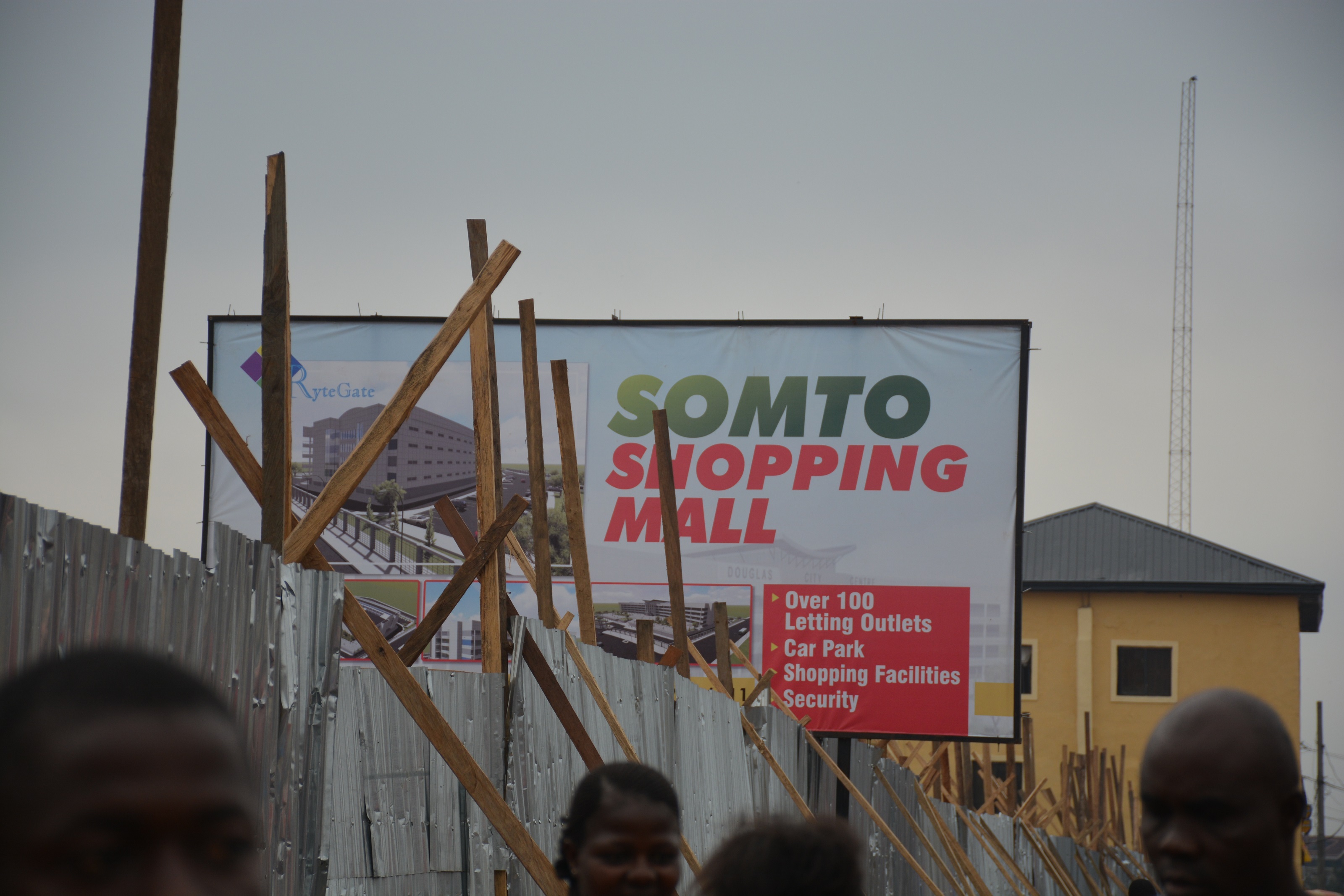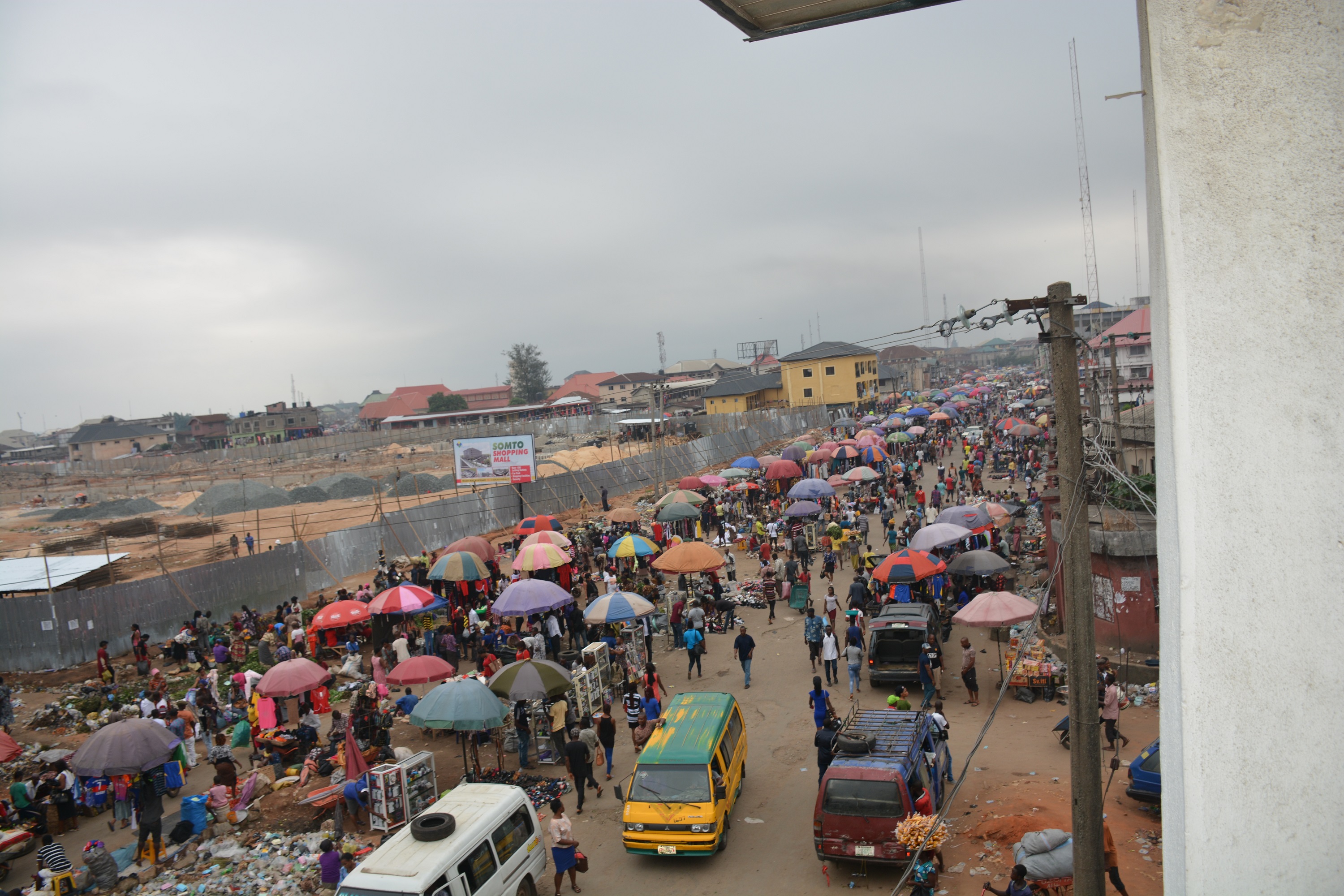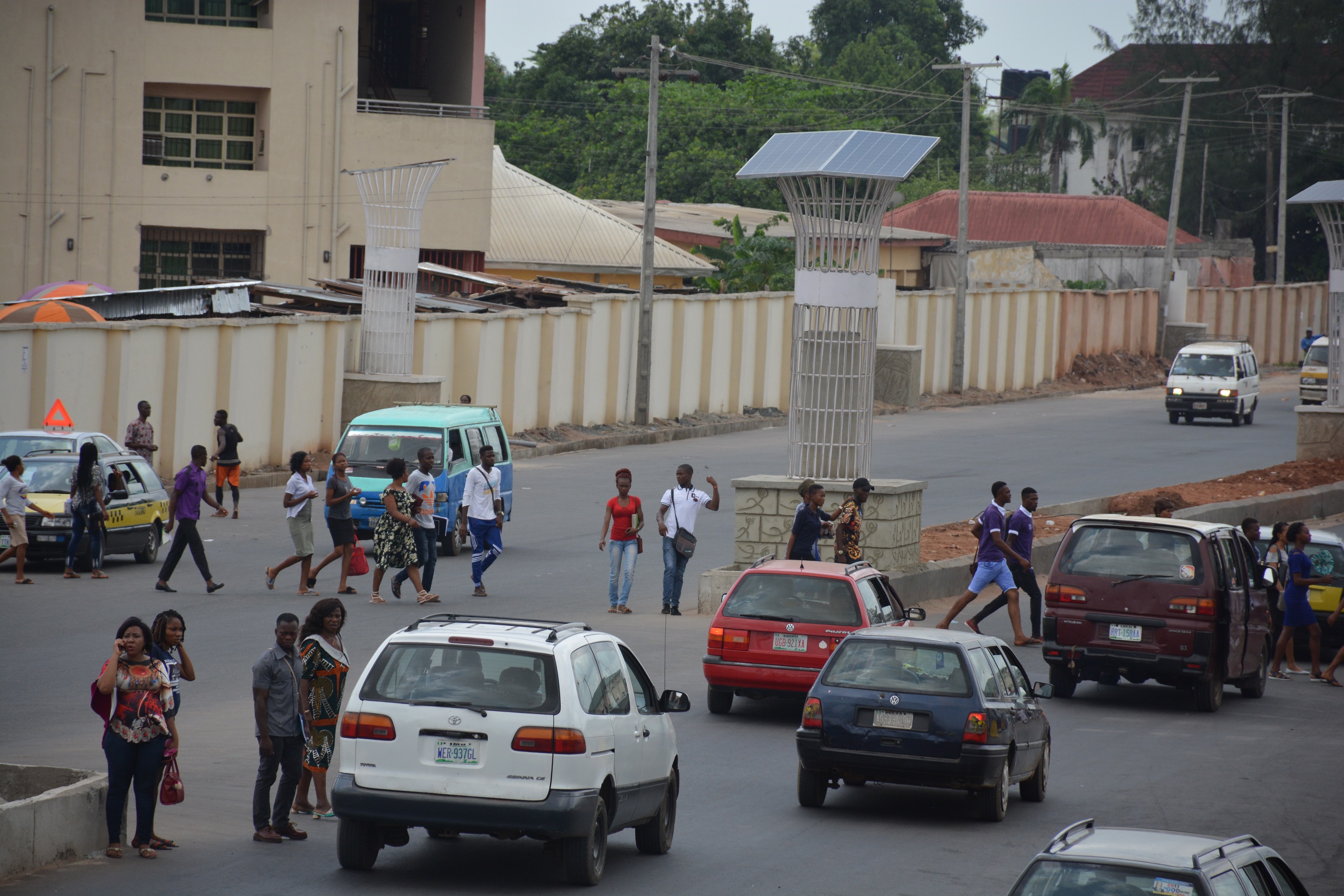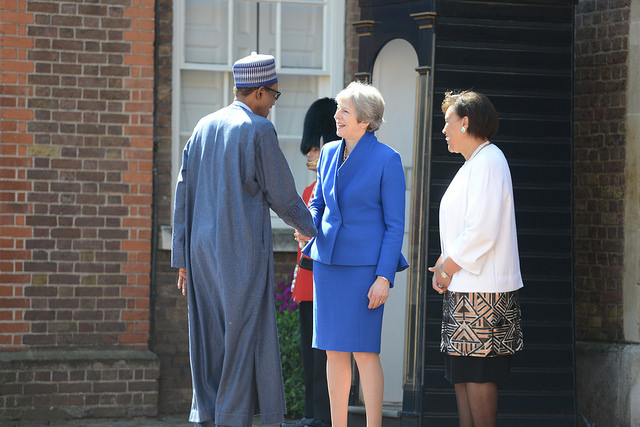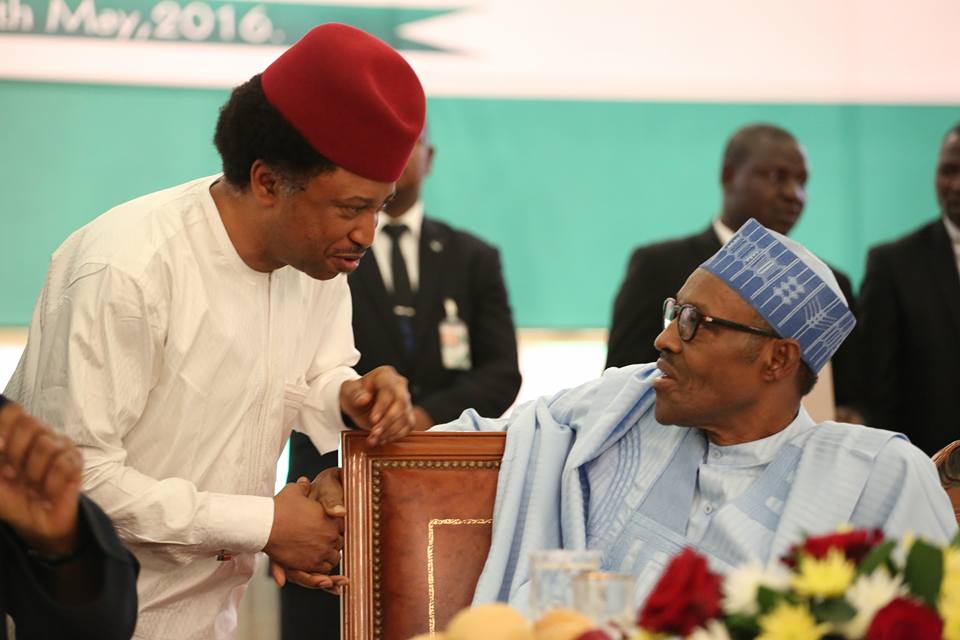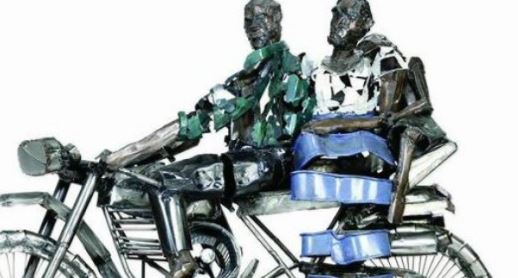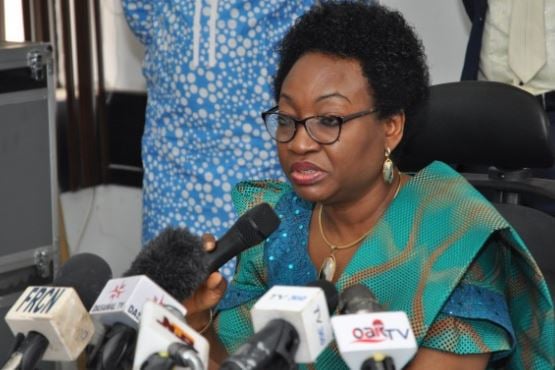Since the start of his second term, Rochas Okorocha, Governor Imo State, has embarked on an audacious urban renewal drive. On paper, it looks laudable: expand the roads, widen the drainage systems, de-congest clustered city locations. But the project has been splotched by failure to compensate lawful land owners, pulling down of buildings without rebuilding them, demolition of markets without relocating the traders, and demolition of estates and reallocation to the super-rich, all combining to portray the project as an aggressive land-grabbing mission rather than the urban renewal it was meant to be, writes ‘FISAYO SOYOMBO, who spent seven days crisscrossing the state’s numerous demolition sites.
When Isaiah Nname Ibeanusi, 48, is asked what he remembers the most about his only son, whose death the Imo State government tried to hush, he goes silent. For roughly five minutes, he utters no word. His other three kids are silent, too. Apparently, there was some kind of telepathy with their dad that conditioned them to the silence of the moment. The journalist and the photographer join in as No 23 Oguamanam Street, Owerri, suddenly morphs into a graveyard, where silence is standard. There were five minutes of silence in honour of the slain boy — only that no officiating minister ordered it. Had a pin dropped, the sound would have been deafening. But everyone was saved the experiment, the silence eventually broken by no one other than the grieving trader himself.
“I remember how I carried the boy on Thursday to school to register him and prepare for everything,” he says in a slow, dreary tone. “Then this incident happened on Sunday. In fact, let’s just forget about all those things.”
No, we will not forget it. Can his 10-year-old boy Somtochukwu ever be forgotten? No matter the magnificence of the shopping edifice that springs up in place of the folkloric Eke-Ukwu Market, it will forever be splotched by the innocent blood of Somto, by his nascent life cut short by the bullets of the “Governor’s boys” sent that fateful August 26, 2017 to level that market at all costs in the name of urban renewal of the city. This particular demolition is one steeped in raw history.
Advertisement
EXPLAINED: THE IMO STATE ‘URBAN RENEWAL PROGRAMME’
Since embarking on a raging Urban Renewal Programme at the start of his second term, Rochas Okorocha, Governor of Imo State, has overseen the demolition of structures in more than 20 public spaces, notably markets, institutions of learning and other monuments.
Advertisement
By Okorocha’s explanation, the programme, tagged ‘Imo My Pride’, is aimed at attracting investors and enhancing Owerri, capital of the state, as a tourist destination. To make this happen, his vow was that his administration would continue “widening the roads, distilling the gutters, relocating markets and making sure that tricycle operators are no longer on the streets of Owerri city”.
He has also repeatedly said — particularly with regards to demolition of markets — that the demolitions would reduce the spate of criminal activities in the state.
| NAME | LOCAL GOVERNMENT | YEAR OF DEMOLITION |
| Ama JK Recreation Park | Owerri Municipal | 2015 |
| Alvan Ikoku University of Education Staff Quarters | Owerri Municipal | 2016 |
| Eke-Ukwu Market | Owerri municipal | 2017 |
| Imo State Library | Owerri North LGA | 2014 |
| Old Stadium Lane Market | Owerri Municipal | 2017 |
| New Owerri Market | Owerri Municipal LGA | 2017 |
| Nwaorieubi Market | Mbaitolu LGA | 2017 |
| Isinweke Market | Ihitte Uboma LGA | 2018 |
| Nkwo-Orji Market | Owerri North LGA | 2018 |
| Amaraku Market | Isiala Mbano LGA | 2017 |
| Alvan Ikoku Bridge | Owerri Municipal | 2016 |
| Mbari Cultural Centre, Ikenegbu Owerri | Owerri North | 2016 |
“In decent societies, markets of that nature must be placed at a proper place and not right in the centre of the city where it does not only constitute nuisance but also promotes criminal activities,” he once said in one of his numerous interactions with the media on Eke-Ukwu.
Looking back after three years, it would seem, on the surface, that the Governor has been urbanising the city, but a scrutiny of the pattern of demolition suggests land-grabbing — the terrifying use of power to take land from the poor and reallocate to the rich — while a physical survey of the city’s demolition sitves exposes haphazard pulling down of buildings without a clear-cut plan for rebuilding.
Advertisement
A HISTORIC MARKET GONE DOWN THE DRAIN
The traders at Eke-Ukwu did everything in their powers to stop the government from demolishing the market. They pleaded with him, their representatives granted interviews, they even instituted legal action against the state government. The market was not just a location for buying and selling, it was a part of the traders’ mortalities; it represented a piece of their history as a people.
This is because the Eke-Ukwu Market had been in existence for more than two centuries. In pre-colonial Nigeria, buyers and sellers convened at the market every four days to trade on ‘Eke’ market day — ‘Eke’ meaning ‘market day’ and ‘Ukwu’ meaning ‘big’. Eke-Ukwu, therefore, was the big market that traded on Eke day.
Advertisement
The market shares boundaries with Umuonyeche Village in the North of Owerri, Amawom village in the East, Umuoronjo Village in the South and Umuodu/Umuoyima Village in the West. It predates the present geographical space called ‘Imo State’. Centrally located, it started from a few stalls but then went on to expand to a total of 3,336 stalls used for daily trading and the supply of various goods and services. Until its eventual demolition, Eke-Ukwu was the biggest market in Owerri Council Development Area (OCDA).
It is a rugged market, too. In 1987, it was destroyed by fire; that was during the 1986-1989 tenure of Amadi Ikwechegh, an Air Commodore, as Military Governor of the state. Traders were advised to relocate to the then alternative ‘Relief Market’, situated at Egbu Road — a government purpose-built market smaller in size to the one gutted by fire. Although some traders relocated from Eke-Ukwu to Relief, the government failed it its attempt at permanent relocation. Rather than relocate, the traders rebuilt Eke-Ukwu — and it would later witness further expansion in trading activities.
Advertisement
SACRIFICED TO THE GODS OF DEMOLITION
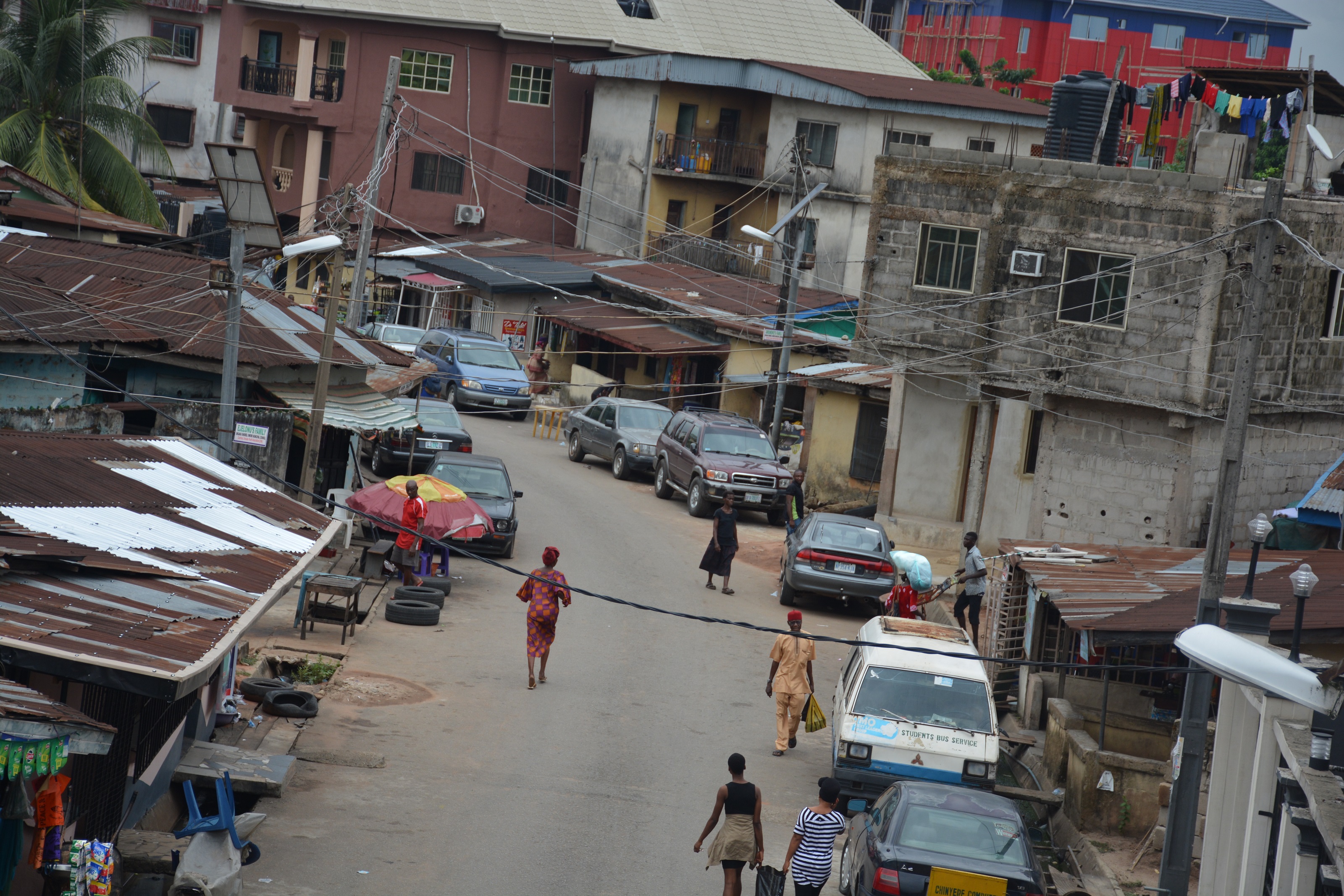
This rich history was part of what the traders sought to protect when they resisted Okorocha’s demolition schedule. But on August 26, 2017 — the day the market eventually came crashing despite a pending court case on the matter — all of Eke-Ukwu’s history was consigned to the bin. No trader was so cold-hearted to be talking history when there was bloodshed. Somtochukwu Ibeanusi, an innocent boy, was felled by the bullets of the men sent by Okorocha to level the market.
Advertisement
Ibeanusi remembers Somtochukwu’s last days as though his death occurred yesterday. “It was on August 26, a Sunday,” he says, a thick sweat overrunning his face to accentuate his bald, shiny head.
“I woke up in the morning. Then I called the boy to join me where I was packing some goods. I carried him and his senior sister to the place, just very close to this house. I told them to stay there. Then, my wife and I went straight to the plaza.
Advertisement
“The Governor’s team started demolishing the place. Around 9:30am, people rushed in, and called me. They said I should forget everything else, that something was happening. When I asked what had happened, they said someone had been killed and it was my son. They said he was shot. When I got there, there was blood everywhere.”
Silence.
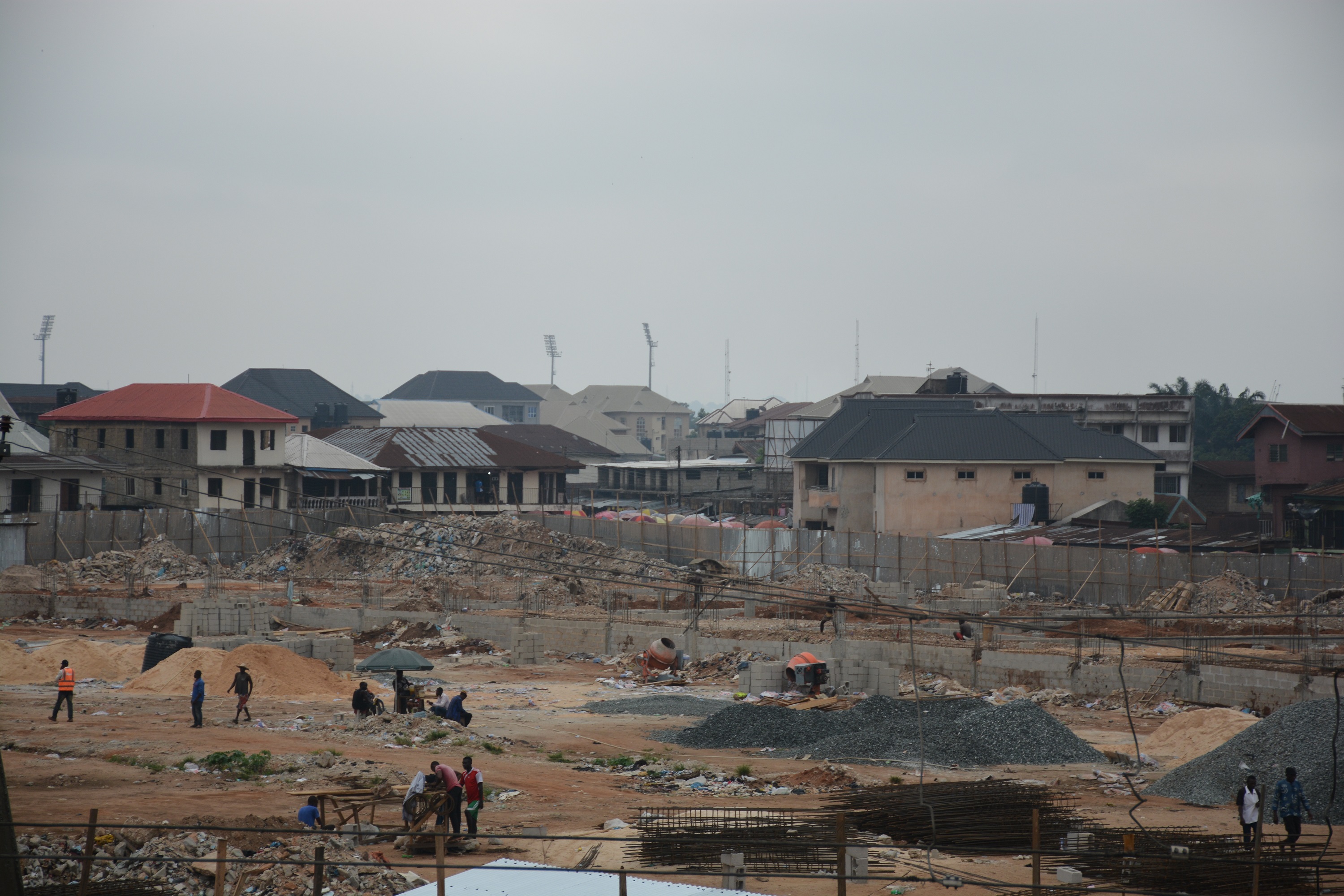
Over the following 10 minutes, the phone accessories dealer would bow his head, uttering no further word, his pain an emotion requiring no artificial transmission; everyone in the room could feel it. At times, it felt like one could even touch it.
Was Somto still alive when he rushed to the location where he lay, his forehead bloodied?
“No,” Ibeanusi replies. “From what I saw, he was not alive. The shot was close-range; the bullet entered from the front and came out from the back.”
N2MILLION THE WORTH OF HUMAN LIFE?

As word went round the state that an innocent boy had been murdered by the Governor’s demolition thugs, the state government quickly moved to exonerate itself. A few days after the incident, two State Security Service (SSS) officials believed to be acting on the Governor’s orders arrived at Ibeanusi’s house with an unbelievable message.
“They said I should not tell anyone that my son was killed in Imo, that I should instead tell anyone who asked me that the incident occurred in Rivers State,” he exclaims, his agony snowballing into anger.
“They promised to do heaven and earth for me if I complied, but I shouted at them ‘over my dead body’. I told them I wouldn’t do it even if they offered me N10 million. The two of them came again the next day, around 4pm. I walked them out and told them I never wanted to set my eyes on them again!”
Somto’s body was at the morgue of the Federal Medical Centre (FMC) for two months before it was taken to his native Anambra State for burial. Okorocha’s men were in attendance, too, to offer him a compensation of N2million cash. But he rejected it. “I sent the money back and in addition I sent them two cartons of malt!” he quips.
A MALL AFTER SLAIN SOMTO
Still desperate to placate Ibeanusi, the state government renamed a part of the under-reconstruction market in honour of his slain son. But it makes no meaning to him, still.
“I saw it last week; they put it there: Somto Shopping Mall,” he says, shaking his head vigorously. “I found it disturbing; I just left the place. You know, it’s just as if this tragedy happened two days ago; I remember it but I don’t like to.”
‘I LEAVE THEM TO GOD’

In addition to the loss of his only son, Ibeanusi claims he lost goods worth over N130 million to the demolition. “I am not joking, but I’m just telling you,” he says. “That time, I took a loan of almost N80 million from the bank, because my order had just arrived from China. And shortly after, the demolition happened. This is why I was desperate to pack the goods until I learnt my boy had been shot.”
So, what can be done to appease him? What would he demand if the government asked him to name his wish? He stares blankly into space for some seconds, before saying: “What are you going to ask for? If they gave you N2million, that would be nothing compared to a life that you lost. Even compared to all the goods you lost, it is nothing.
“I think I just have to leave this type of thing to God. I can’t just start saying this is what I want, you understand me? I lost my son, I lost many things. I just don’t know what would make the Governor say he must demolish this place.”
A NARROW ESCAPE
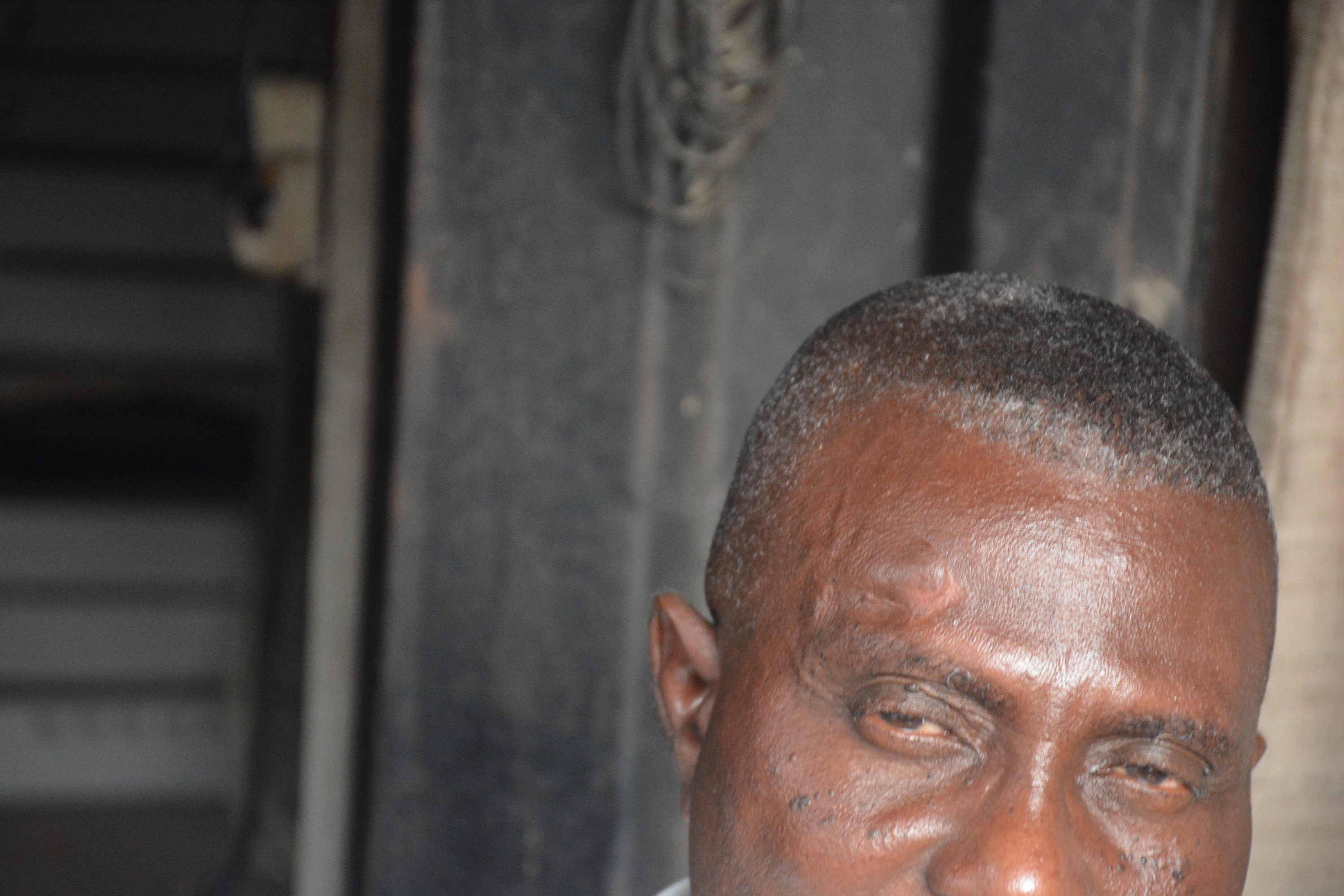
Sixty-year-old Sebastine Oparaku can count himself lucky as far as counting personal losses from Eke-Ukwu Market demolition go. Not that his son could have been killed, like Somto. Were he not lucky, the electronic gadgets repairer himself would have been the victim, the story of the tragedy told by his son.
“When the Governor’s boys were demolishing the market, it wasn’t my concern because I am not a kid or that type of exuberant youth that’ll begin to go and watch the molestation of citizens by policemen or the demolishers,” he says.
“I was in my house looking through the window there. They were passing by, the police and some soldiers. At a point, a group of boys were coming along the road there, but one of the soldiers asked them to back off.”
The boys retreated but not without pelting the soldiers and policemen, in annoyance. In response, the police opened fire at them. They fired the initial shots in the air; even that was risky as they were in the heart of the town, populated by homes and hotels. But as the boys continued pelting them, the police/soldiers upped the fire: An Armoured Personnel Carrier stationed at the edge of the market fired shots indiscriminately towards the boys. It was one of those bullets that pierced through the window of Oparaku’s house and hit him just atop his right eye, somewhere between the right side of his forehead and temple. He fell instantly. Ironically, none of the angry boys — the original targets of the bullet spray — was hit.
“I fell down unconscious immediately, but I remember hearing the screams of my wife,” he recalls. “My son and his friend brought me down from upstairs and put me into a tricycle. They took me to the Federal Medical Centre (FMC), Owerri. That was how I found myself at the hospital.”
NO TIME TO WASTE ON ‘THIS GOVERNMENT’
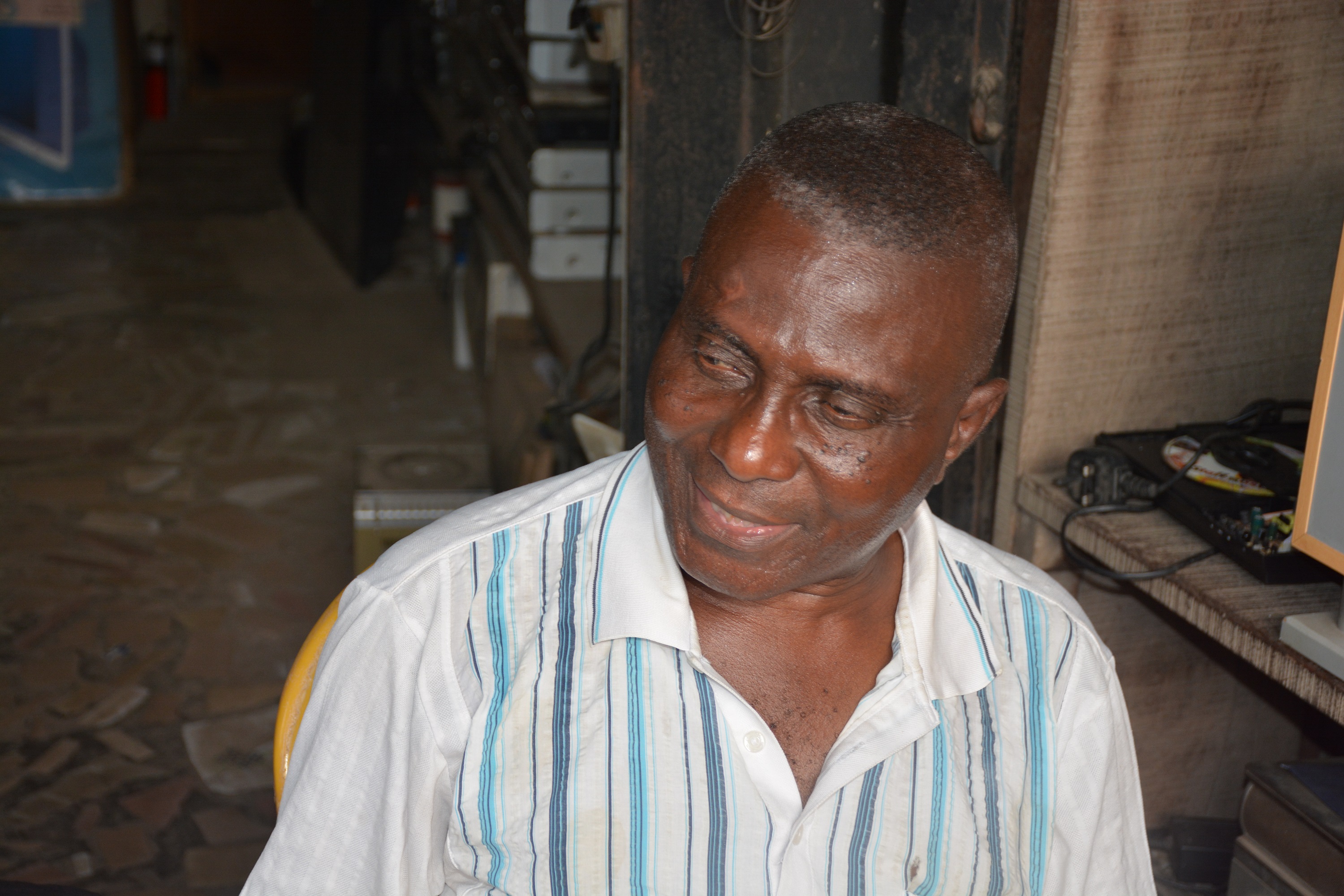
For the six weeks that he and two other injured persons spent at the hospital, no official of the state government showed up. Oparaku spent more than a N100,000 on brain scans and drugs procured from outside the hospital. But the in-hospital bills were funded by Ifeanyi Ararume, the Senator representing Delta North at the National Assembly.
Did the government ever pay him any form of compensation? “No, no, no; nothing at all. Even the government never accepted it that one person was shot, except that boy [Somto] who died instantly,” he says.
“In fact, nobody from government has ever come to ask me anything like you’re doing now. Nobody has ever come from government, either from August 26 till first week of October when I was hospitalized, or from then till date.”
Asked what his plea to government would be if he had the chance to make one, considering the losses he and business suffered, he replied: “Which government? This one? I do not have one minute to spend on this government.
“This is our market. I am indigene of this place. This market is ours. We’ve said about the market that it should not be demolished. They should restructure it, either by fencing it or by prohibiting trading on the streets or by demarcating the market from the main road. It was unnecessary to demolish it but they did. Well… our community and the government are still in court because of the issue; it has not been resolved.”
ALVAN IKOKU — NO VICTOR, NO VANQUISHED
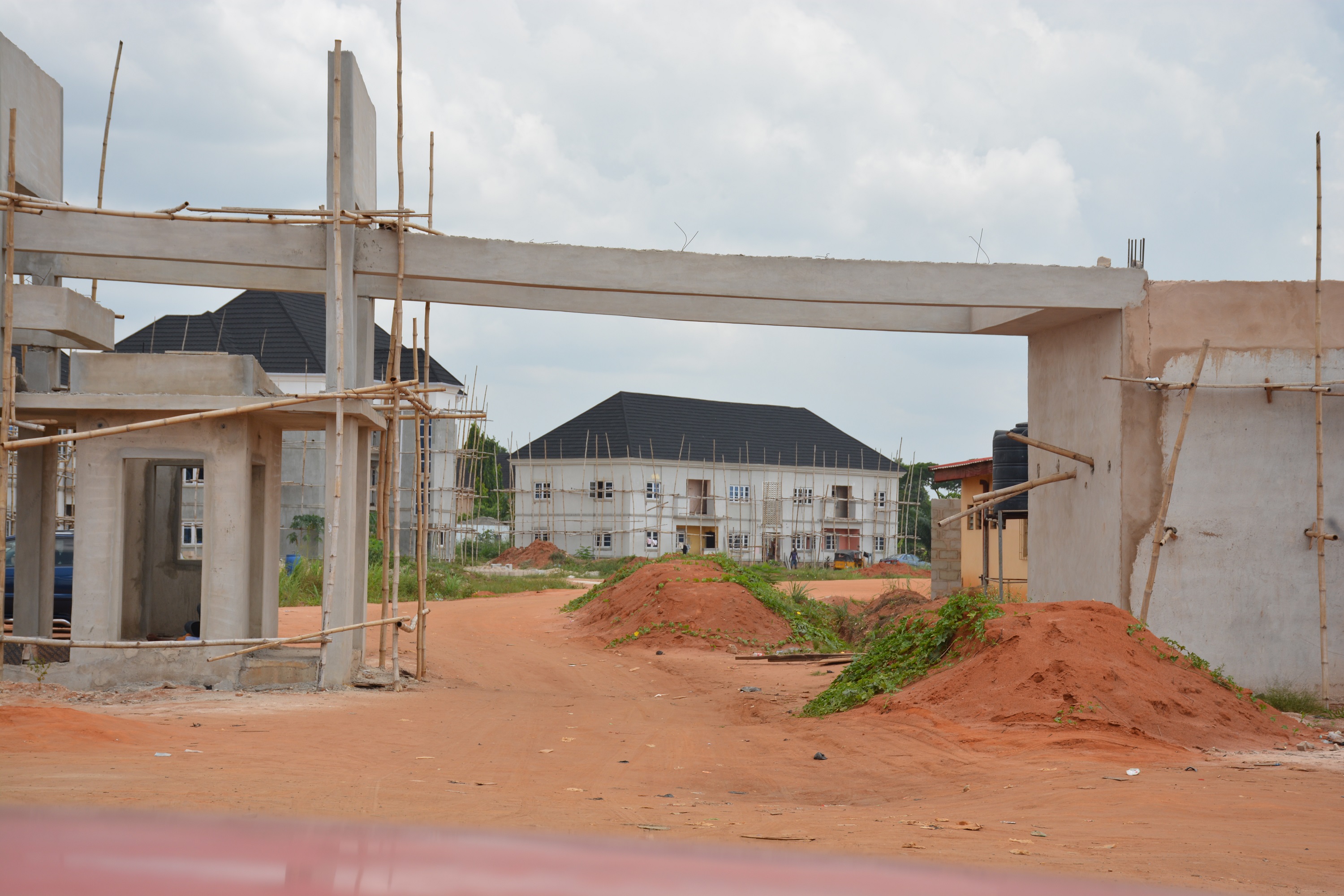
Before Okorocha stepped in, there was a three-way battle for the control of the official quarters of Alvan Ikoku College of Education (now Alvan Ikoku University of Education). Retired staff of Alvan, as the institution is fondly called, wanted to buy off the residential spaces they were occupying, redevelop them, and continue occupying them despite having completed their service to the institution.
The school was also laying claim to the place, known for ages as the Alvan Ikoku Shell Camp Quarters. A third group, the Orji/Uratta Aborigines, wanted it as well. Their claim is that they leased the place to the Shell Oil Company for a 50-year period that elapsed in 2015.
Then Okorocha joined the fray, further complicating matters by claiming the land belonged to the state; Alvan’s claim to ownership was that the Federal Government takeover of the school in 2007 had nullified the state’s claim to ownership, but the state is insisting that the school — not the quarters — was transferred to the Federal Government. The turnout of events would seem to confirm that the Aborigines had the strongest claim to the land.
For years, Alvan and Okorocha played cat and mouse. Okorocha would send his foot soldiers to the quarters to forcefully eject Alvan staff; Alvan management would mobility its security officials to mount up a resistance. Elsewhere, the Orji Community sued the state government, Federal Government and Alvan; the matter still hadn’t been determined in June 2017 when Okorocha’s men laid siege to the quarters, breaking doors and removing roofs, consequently forcing Alvan staff and retirees out of their residences.
The state government claims to have negotiated with the Orji Community and paid them compensation for the land, but Amanze Njoku, a Chief and Administrator General of Orji Aborigines Congress, has since denied, wondering: “Please ask them to tell you whom they settled because the land in questioned is owned by individual families and not a communal land. The matter is still in court and if they have settled us as they claimed, why are we still in court? It is the same people that they claimed to have settled that are the litigants who are from Orji/ Uratta in Owerri North.”
So, as it stands, it’s no victor no vanquished. The Alvan retirees have no place of their own to live; Alvan itself, as an institution, no longer has an official quarters; the Orji Community, at the moment, has no land. All the actors of the initial three-way hustle for the land have lost out. Instead, it now belongs to the state and has been rechristened ‘New GRA Owerri’.
ACADEMIC STAFF OUT, MONEYBAGS IN
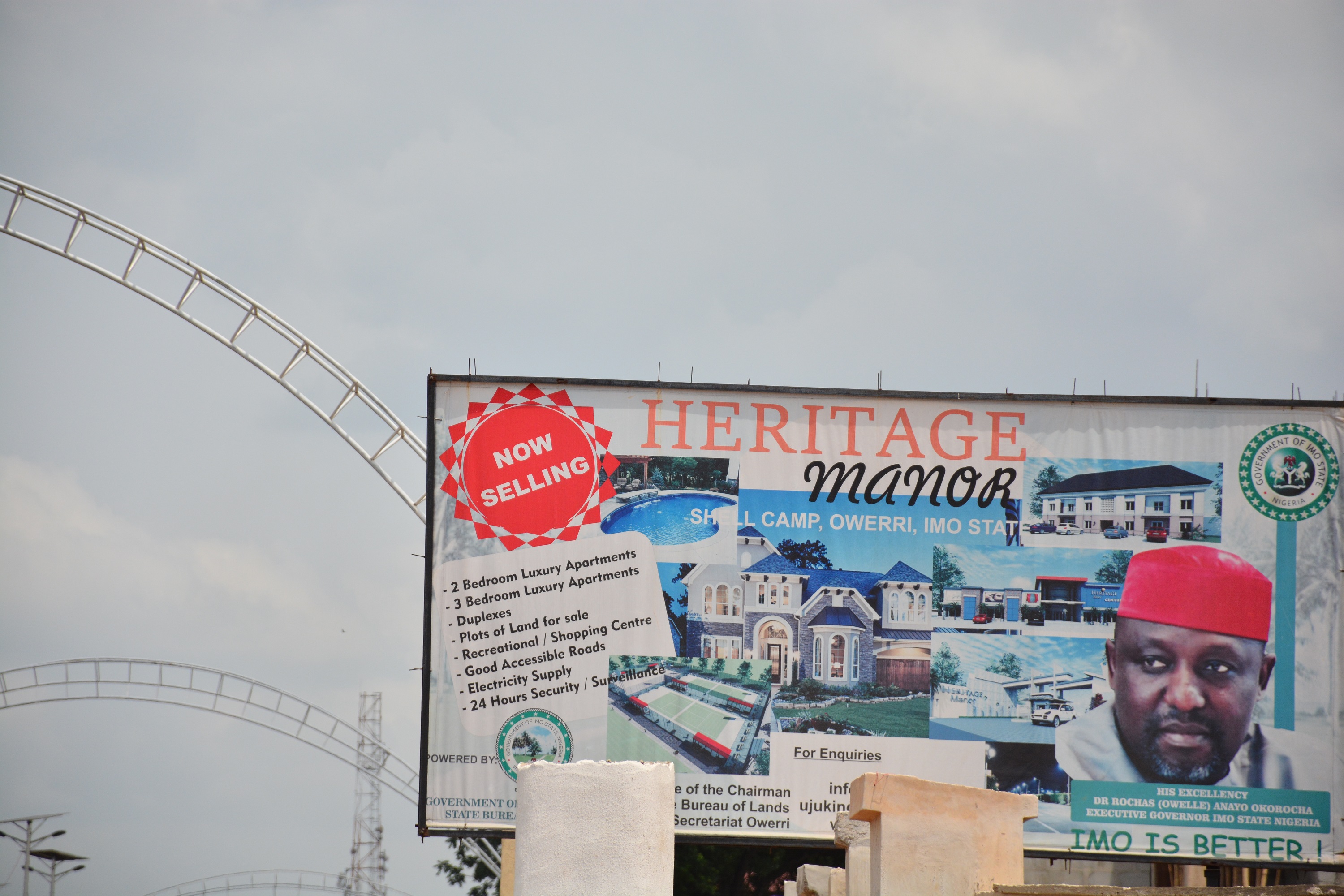
With the state now well and truly in control of the quarters for almost one year, there ordinarily should have been signs of its much-vaunted Urban Renewal Programme. But, what has happened, instead? By the admission of Leonard Okoro, Principal Aide to the Governor on Recovery of State Government Property, the state government has been “reallocating the lands to illustrious sons and daughters of the state… for N25 million per parcel of land”.
“Majority of them are politicians — these so-called illustrious sons and daughters,” says a senior staff of Alvan, who asked not to be named for fear of losing his job. “Not only that, former occupants trying to buy back their spaces at government’s new rate are having a hard time due to huge demands for bribes and kickbacks by state officials.”
According to a giant billboard at the entrance of the quarters itemizing the government’s plans, apart from the plots of land for sale, the redeveloped estate, when ready, will contain “two-bedroom luxury apartments, three-bedroom luxury apartments, duplexes, recreational and shopping centres, good accessible roads, electricity supply and 24-hour security/surveillance”.
MONEY HAS BEEN CHANGING HANDS
Narrating his experience, he said: “I reached out to the Governor and requested that I should be allowed to buy my space back since I’ve noticed that people were buying them. I asked if he could grant me lease of the land, then I’ll be able to build since they said they are coming to build a housing estate. I might not be able to raise the kind of money I was hearing about, but if I’m given lease of the land, I will gradually build it according to the plan of the area.
“On my application, I wrote something on it, and forwarded to the person in charge and the Deputy Chief of Staff. We have been going out for series of negotiations. And you know your politicians, everybody is doing their own thing; I won’t say money has not been changing hands, depending on the individual involved at each level. Eventually, they were making unnecessary complaints about the whole thing. Right now, the position we’re in, I still have to see the Governor.”
He still cannot understand why government would chase Alvan staff out of the place without compensating them. “I think they should maybe try and pay compensation to the staff and to Alvan if they want to,” he says, “because it’s a win-win or lose-lose situation. At the end of the day, Alvan still belongs to the government.”
ROBBING PETER TO PAY PAUL

Ada Obiaku was still a spinster when she purchased her shop at Old Stadium Lane Market, Tetlow Road, Owerri, for N500,000. Several years later, and following the fall of Old Stadium to Okorocha’s Urban Renewal Programe, she is now shop-less — and so she will be unless she can miraculously raise a sum of N3million, the going rate of shops at a new market the Governor directed Old Stadium evictees to.
This is pretty much the story of traders whose markets have been demolished: you lose your shop, you’re offered no compensation, you’re told to look for space in a distant market where shops cost six to 10 times the old rate.
“I have been in this market for a long time — since when I was still a spinster. The demolition started in August 2017 and as you can see, we are all stranded,” she says.
“The Governor said we should relocate to Egbeada, which has not been built. He gave us a 48-hrour notice to leave this market. I was on a trip out of town when I got a call from my daughter about the Governor’s announcement of demolition plans.”
Obiaku abandoned her trip in a bid to salvage her goods but she was only partly successful. “We lost some goods in the process,” she laments. “We are just relying on God to help us.”
Actually, Obiaku’s primary worry is not even the lost goods but the exact handling of the relocation exercise.
“My view is that the Governor didn’t do this the proper way, and I am not happy about it all,” she says. “The place at Egbeada where we were asked to relocate to is handled by some contractors. If you have your money, you pay and they build for you; if not, you wait and rent from those who built it. A shop there costs about N3million. Tell me, where am I supposed to get that kind of money from?
“What the Governor should have done is to ask for our allocation documents so he can reallocate fresh spaces to us instead of handing it over to contractors. Alternatively, after relocating the place to new contractors, he could have compensated us by making us pay a new allocation fee to the government rather than to contractors. We were paying a monthly allocation fee of N1,800 to the local government, so it’s not like government doesn’t know we owned those shops. As it stands, the contractors and other wealthy people are the beneficiaries of land taken away from poor people like us; it’s like robbing Peter to pay Paul.”
TEARS AND SORROW
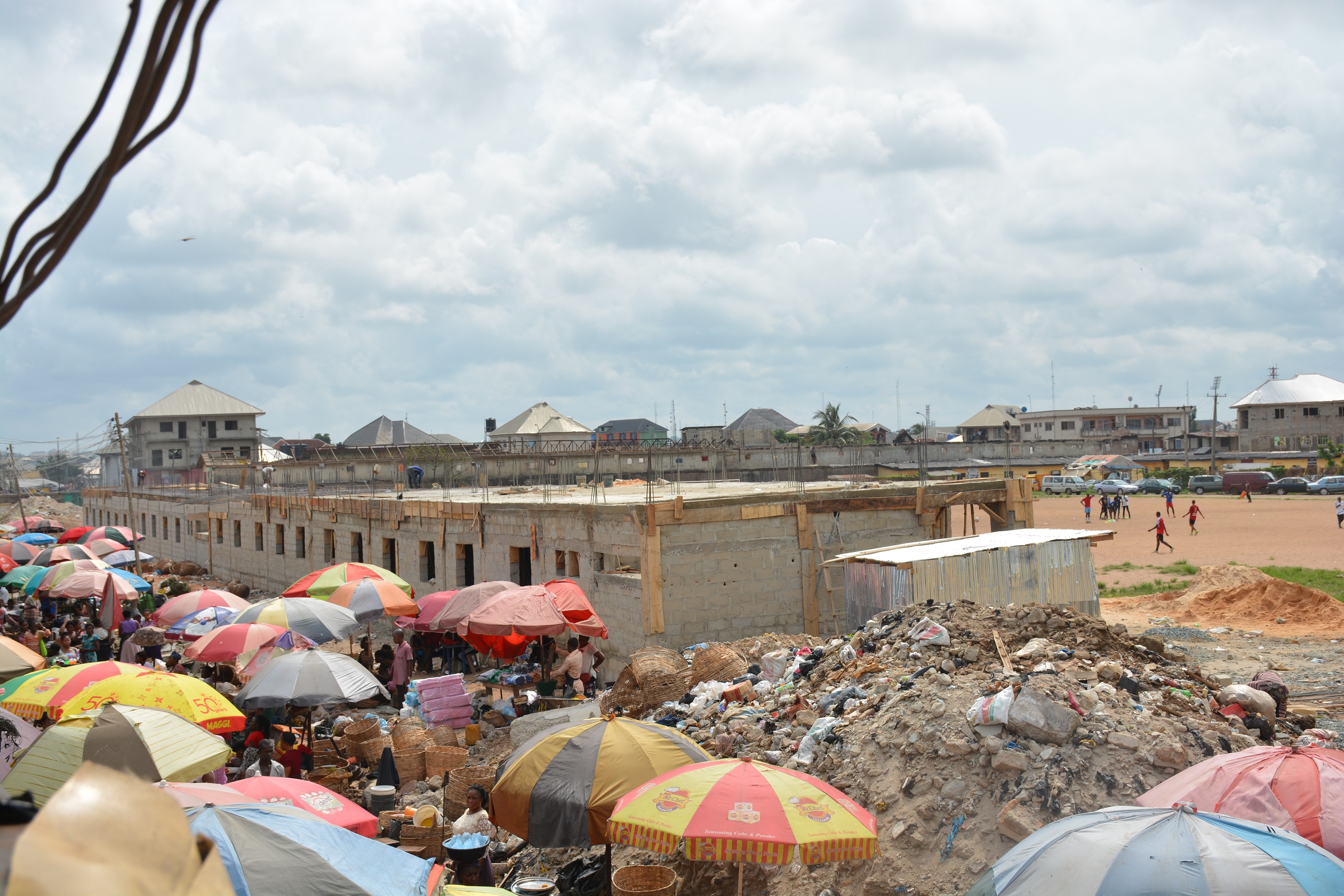
On the day the Governor’s thugs came to demolish Old Stadium Lane Market, there was a lot of weeping. So says Patricia Maduforo, 48, who had owned a shop at the market for more than 18 years prior to the demolition.
“For all these 18 years, nobody disturbed us here. This problem all started last year around August. There were rumours that it was going to be demolished, but we took it as a joke,” she recalls.
“The day he started this demolition at a shopping complex around Douglas area, so many traders’ goods were destroyed, especially those who deal in handsets, eyeglasses, wears and so on. We all felt sympathy for them because that was the entrance and that was where it started from. That fateful day, we wept but we had to console ourselves. Some of us lost our goods to miscreants in the confusion of the entire incident that was going on.
“What he did was to create a group of young boys who come into the market to chase us out; if they got anywhere close to your goods, they set them ablaze. Sometimes, I had to stop my kids from going to school so they could help me pack the goods when they started chasing us. This was what we passed through.”
After the demolition, the shop owners were expecting to be called by the government to present their allocation documents so that they could be allocated land afresh. How wrong they were!
“He never did,” she says. “What we heard is that we should go to Naze, that if the landlords of the shops asked for rent, he would know how to settle them. I have been trying to get a shop since but all to no avail.
“The Governor said he would replace this market with a school, that we should all be going to school and we should leave the market, that he’s not going to allow us trade here and that we should go where he has asked us to relocate to. He gave us a two-week quit notice but he didn’t even wait for up to 2weeks before demolishing the market.”
More than six months after the demolition, Maduforo is still at a loss how a government can in good conscience take land from its owners without compensating them.
“I had one shop before the demolition where I sold food seasonings; I bought it from the original owner. I have all my documents and I also paid an allocation fee of N1,800 monthly at the local government office,” she says.
“I am not happy about this whole ugly incident. What I expected was for the Governor to provide a place that has been built for us before the demolition. I am so confused and devastated but I have to brace up and continue my hustle to make ends meet.”
GOVERNANCE BY INTIMIDATION… ‘WITHOUT CONSCIENCE’
Anywhere you brought up the subject of demolitions across Imo State, the people were always reticent — timid, in fact — to talk. The traders were the most fearful of the Governor, one telling the journalist: “Please I don’t want to talk; I don’t want Okorocha’s problem.”
It is understandable. Their livelihoods revolve around their goods and the markets where they’re traded. The demolition of these markets left them vulnerable, naked even; it’s an assault on their essence by the very government that promised to serve the people. Their thinking, therefore, is that should they speak against the government, they may be faced with such sanctions that may permanently strip them of their livelihood. So, the majority of traders encountered in Imo refused to talk; those who did usually asked to remain anonymous, while only the smallest percentage spoke without hiding their identities. Of those who spoke anonymously, one was particularly scathing in his assessment of Okorocha: A “Governor without conscience”.
“In 2016, the Governor told us that he was coming to demolish the market, that we should relocate to Egbeada — close to Akwakuma. No date was given for the demolition,” recalls the middle-aged man, who sold odds and ends at Eke-Ukwu Market.
“Then last year, he came to the market to make an announcement. We were prepared to go to Egbeada. So, around August, he called for a meeting with all traders. This meeting held at the Imo International Conference Centre (IICC), Owerri, on a Friday. Surprisingly, on Saturday, which was a cleanup day, next thing we saw was a caterpillar that started bulldozing the buildings. I travelled to buy my goods that same Friday, so I was still away when he started this demolition. I lost my goods, because I wasn’t expecting the demolition to be that soon.”
Both he and his landlord, to whom he paid 10,000 monthly for a “half-shop”, have still not been compensated for the loss — in addition to floating at Eke-Ukwu without a permanent spot to sell his goods.
“He is supposed to have a conscience as a Governor that he is,” he adds. “Even the so-called Egbeada that he asked us to relocate to, he hasn’t finished it yet. Before you ask a person to leave a place, at least make a better provision for that person. I lost a shop and my goods. No form of compensation.”
‘HELP ME TELL THE GOVERNOR WE’RE NOT HAPPY’
At 70, Linus Iwu, a cobbler, is aged and experienced enough to know that governments come and go, and is therefore “not afraid to talk”. He is deeply hurt that his means of livelihood has been snatched away from him (as part of the wider demolition of Nwaorieubi Market in Mbaitolu Local Government, in January); but much more than that, he feels betrayed — betrayed by a man whose governorship ambition his people supported back in 2007.
“When Okorocha was campaigning to become Governor, we the Mbaitolu people supported him fully with hope that he was going to remember us for good in his reign,” says Pa Iwu. “As he has demolished our market we are not happy about the situation. Please help me tell the Governor that the people are hungry; he has sent so many back home as a result of this action. The government should please come to our aid.”
The demolished market was a gift to the Nwaorieubi community by the government and sold to the people “many, many years ago” at ridiculously cheap prices, a plot going for as low as N15,000. The individual buyers then built it to taste. Now managing at a tent at the same market, Iwu still cannot come to terms with the new reality.
“We have been trading here for a long time. I am from Umuanum here. I paid a yearly rent of N6,000. Lockup stores went for N30,000/year,” he says.
“I wasn’t at the market on the day of the demolition, therefore I lost all my work tools. I am really suffering a lot; I am not happy about this demolition. He comes and destroys and he has no plans of raising another structure for us? If he was building another one for us, it would have been beautiful.”
As it is now, once the rains begin, both the traders and their goods will be drenched from time to time.
“We’re trapped in deep suffering,” Iwu adds. “The worst part is that the umbrella with which we shelter ourselves and our goods, it gets blown away once it becomes windy, so we have to close it up and trade directly under the sun.”
‘THE GOVERNOR HAS COLONISED ALL THE LANDS’
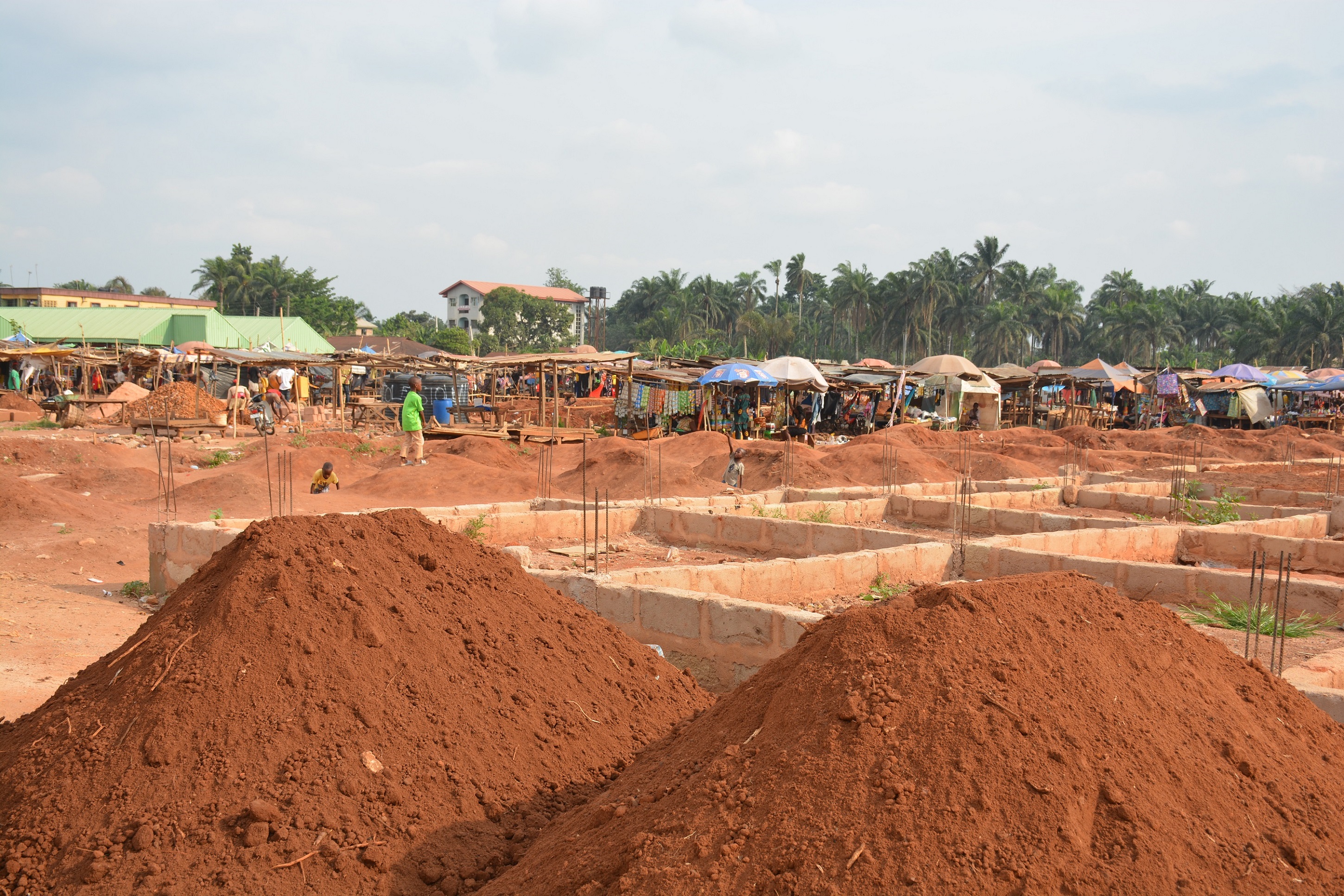
As far as Chidinma Anoruo is concerned, what is happening in Imo is “colonization of lands” by the government — not urban renewal. Before Amaraku Market, in Isiala Mbano LGA of the state was demolished, Anoruo paid a rent of N2,000/month (N24,000/year) to her landlord for her stall.
Now, she no longer has a shop — and she knows she will be unable to afford the rent for one when the under-construction market is finally rebuilt. While construction hasn’t commenced in many other demolished markets, Amaraku is work in progress — only that former tenants will be priced out of contention.
“They are still bargaining on the new rent that would be paid by anyone who wants a shop in the new market. But since government is still the one to determine the rent, we know we are in trouble,” she says. “Okorocha has colonised all the lands; this government has killed us. This exercise has rendered some youth jobless. If he was demolishing and rebuilding, it would have been better but he’s not even doing so.”
PEOPLE ARE SUFFERING
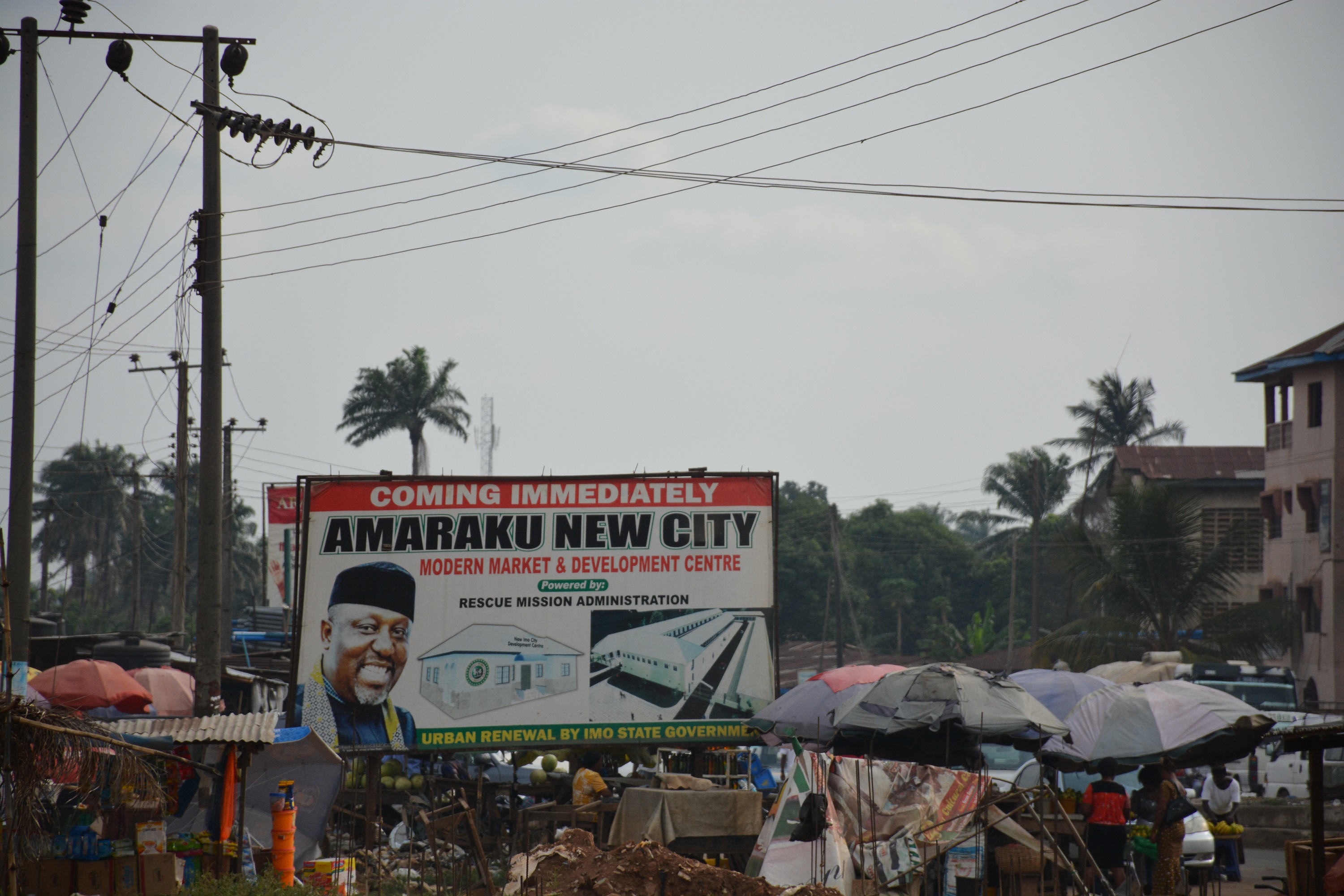
She says the post-demolition experience is hard already, but it will get worse at the onset of the rains.
“I still convey my goods from home. It is going to be drastic during the rainy season as we are still in an open space. For now, we do not know our fate. We heard the Governor said openly that it was the Hausas who voted him in, not Imolites, so for that reason he will do as he pleases.
“Things are hard these days. People are suffering. There used to be a widow whose only means of livelihood was the shop her husband left for her. But after the demolition, the woman was so disconsolate and withdrew into herself until she died. I strongly believe she would still be alive if this market wasn’t demolished.”
AN INVITATION TO DEATH
Alvan Ikoku University of Education offers one of the grimmest shortcomings of Okorocha’s stop-start renewal programme, typified by the uprooting of buildings without erecting their replacements.
The pedestrian bridge in front of Alvan was pulled down last year as the Governor sought to expand the road. Many months on, the demolished bridge hasn’t been rebuilt, consequently endangering the lives of students and visitors to the university, who now have to run across the road.
“It’s suicidal; an invitation to death,” says Ifeoma Okochu, a student of Alvan. “I don’t know if anyone has died yet but I’ve witnessed two close shaves already — two instances when a road user was one second away from being knocked down by an oncoming vehicle.”
URBAN RENEWAL WITHOUT DEMOLITION… IT’S POSSIBLE
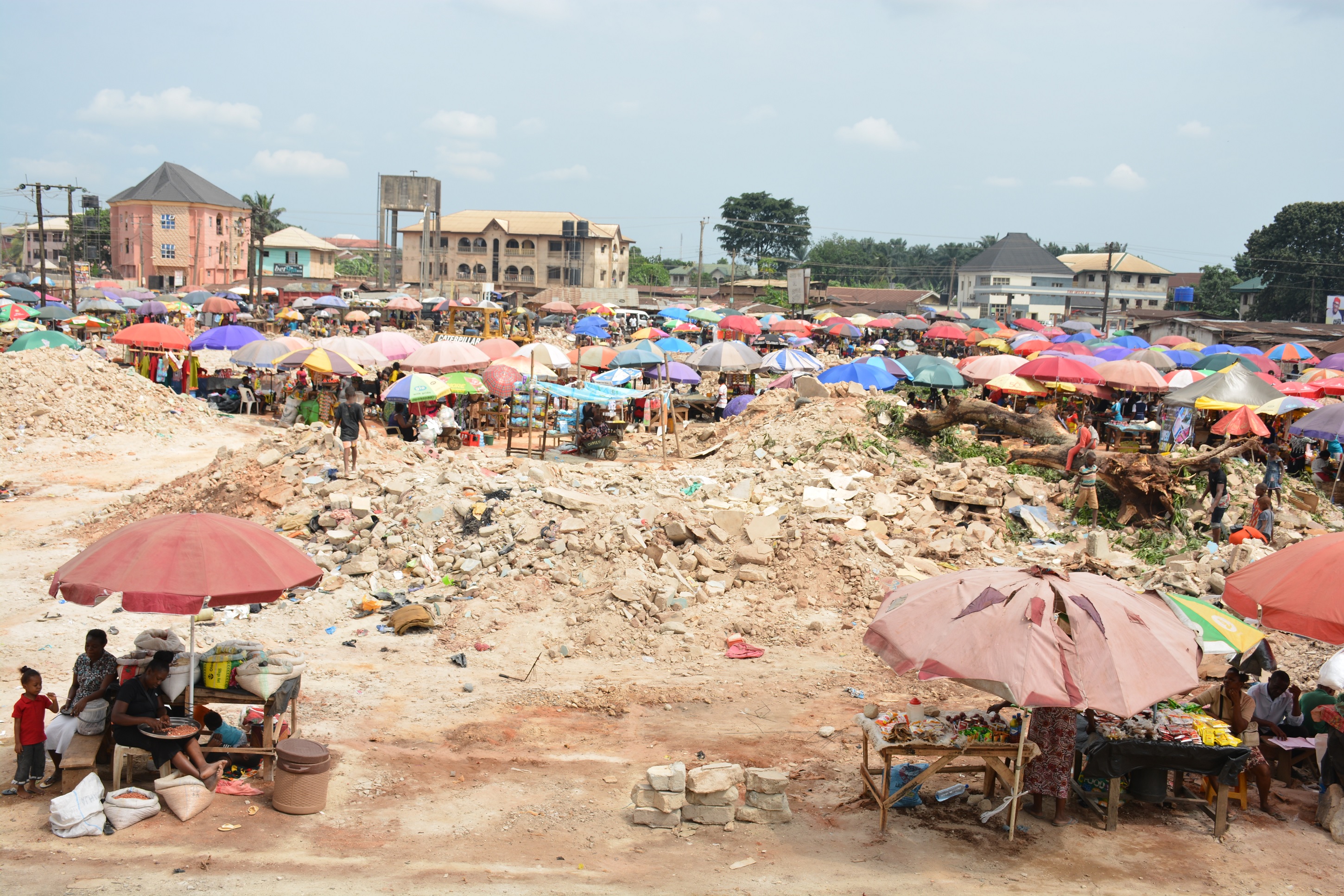
An urban renewal project can be executed in a state without widespread demolitions. And if it must be demolition-centric, it must be done with a human face. So says Dr. Chukwuedozie Ajaero, a Senior Lecturer in the Department of Geography, University of Nigeria, Nsukka, in neighbouring Enugu State.
“There can be minimal demolition, in the sense that you can actually create a new layout from places that were not part of the major urban area. It can be done without demolition. But even if there has to be demolition, it should be minimal,” the Population Geography specialist says.
“Now, if you want to demolish markets, it is expected that you must have an alternative before demolishing the one in existence. You can’t just demolish without having an alternative; it will cause serious inconveniences, untold hardship, environmental degradation and pollution; and it may also cause conflict and unrest. It is not a problem to demolish, but make sure there is alternative and it is affordable to the people before – not after – the demolition.”
Ajaero says demolition should be a last resort, as there are no guarantees that pre-demolition promises will be kept. “How are we so sure that after the demolition, you are going to build what you say you were going to?” he asks.
While he is in no doubt that government has a right to land, he maintains that this right must be executed with a human face.
“Rightful owners of land deserve compensation after demolition, but this a function of litigation and a function of the goodwill of the Governor,” he explains.
“By the 1978 Land Use Act, all land belongs to the state, administered by the state government. Therefore, government can take it. But there must be human face in applying each law. Logically, they should be compensated – especially when those people have allocation from the government.
“For example, you want to build a market, and you asked the state government for allocation and you paid for it. Then definitely you should be able to compensate them. But if the Governor doesn’t do that and he says it’s for public interest, nobody can question him. Public interest can be anything. If the market being demolished has the approval of the government, if it has been there for years and government has been collecting taxes and rent from that place, then there should be compensation. If these things were never there, then the issue of compensation may not arise.”
In the case that the bases for compensation have been established, how is the settlement determined?
“As I said, it’s an issue of legal litigation. Some governors can decide a flat rate for compensation. But the normal thing is that you value the property before demolition, and use it as guide when it’s compensation time.”
OKOROCHA’S SPOKESMAN SAYS ‘THIS IS OLD STORY’

When contacted to respond on behalf of the state government to the travails of evictees, including claims that the Governor was taking land from the poor and reallocating to the rich and powerful, Sam Onwuemeodo, Okorocha’s spokesman, was visibly annoyed: “Which demolition? Markets?” he snapped. “Old story. We have passed that stage. This is old story!”
But for the people who have suffered grave physical, psychological, mental and financial losses — such as Isaiah Ibeanusi — the story is still new, forever fresh in their minds. The blood of the deceased — three in all — and the sweat and tears of thousands of displaced and abandoned traders will not dry up anytime soon even if the streets of Imo are paved with gold.
This piece was originally published by the ICIR
Add a comment

